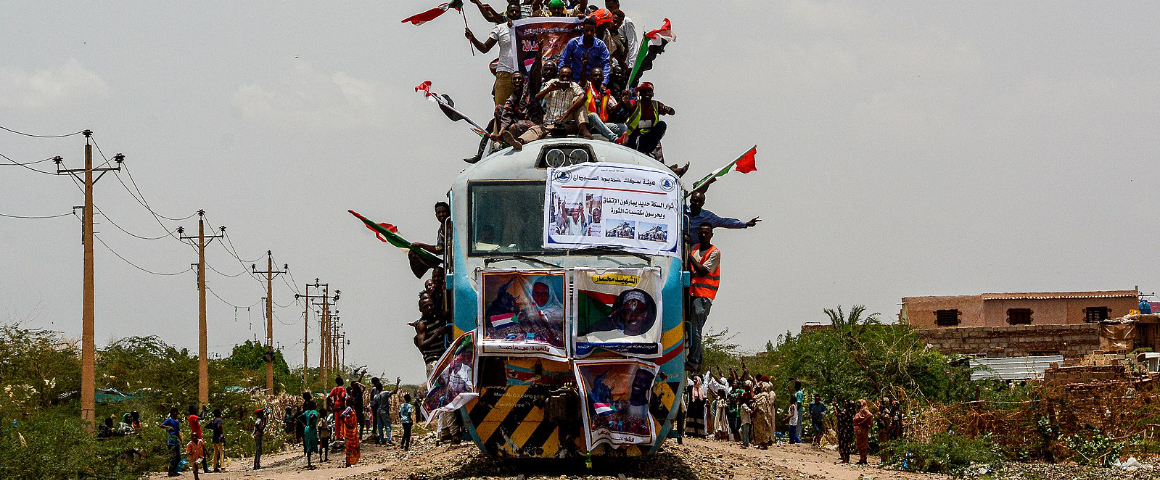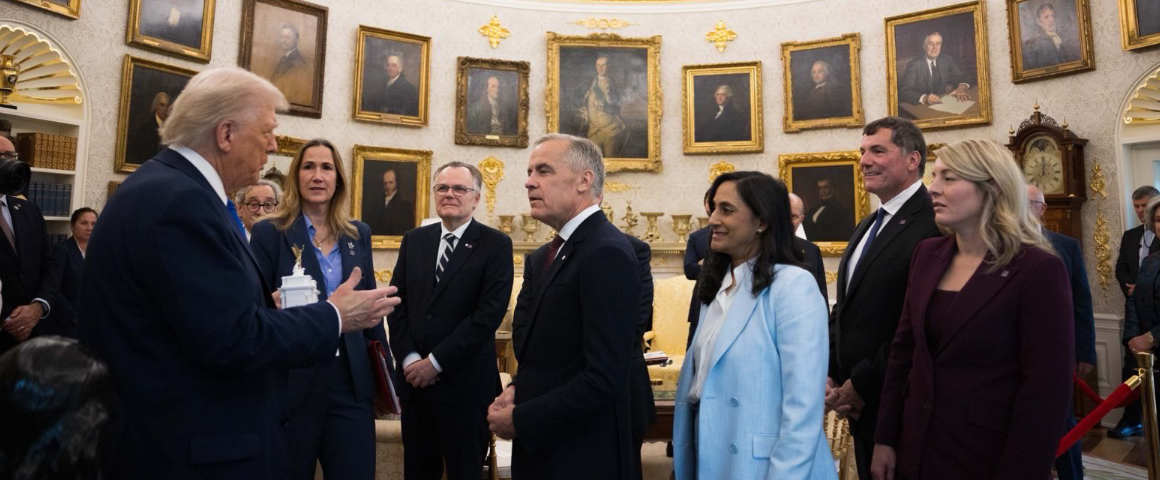Part two of a two-part commentary on the crisis in Sudan
By Elfadil Elsharief Elhashmi
The war that has been raging in Sudan since April erupted as the result of several ticking time bombs which combined to impose and maintain a completely lopsided distribution of resources, wealth and power in the country. Unless they are carefully addressed and resolutely confronted, these seven factors will remain as bottlenecks on the path to peace.
- Extreme kleptocracy upheld by extreme ideology:
The military regime, dominated and controlled for over three decades by the Muslim Brotherhood, is profoundly kleptocratic and parasitic to the country’s economy. To maintain this, it has to be ideologically fanatic and brutal in its strategies and actions against civilian dissent. The naked looting, bribery, corruption and exploitation could not practically continue without an extremist (and fascistic) ideology which justifies it.
The material form of this was the “Civilization Project” which longtime dictator Omar al-Bashir implemented beginning in 1989. This project involved the fundamentalist Islamization of all socio-political and economic spaces in Sudan including banking, taxation, health and education.
Militarism and fascism framed the vision and provided the mechanisms for the Civilization Project, along with a few self-appointed religious intellectuals, sheikhs in the Native Administration (a localized system of governance and control which was initially instituted by British colonial authorities) and partisans who promoted a power sharing partnership with the warlords.
This explains how, during transitional rule, the old regime’s vital economic structure has been left intact. Through this structure, the Sudanese Armed Forces (SAF) has privatized, looted and controlled more than 80 percent of public economic resources including agricultural, livestock and industrial factories, as well as war and weapon industries whose exports and revenues have been kept outside the control and reach of the Ministry of Finance and the Central Bank. Furthermore, these industries have been maintained by the SAF on a tax-exempt basis.
Additionally, both the SAF and the militias (Rapid Support Forces – RSFs) have been milking more than 70 percent of the government’s annual budget through heavy informal levies and indirect taxes on the 95 percent of the population who are below the poverty line.
How can a transitional process succeed or even survive with such huge economic distortions, while the tiny ruling circles have private hospitals, private universities, private planes, malls and rationing units providing them with bread, sugar, gas, medicine and clothing?
This war is more than a fight between two generals. The conflict involves the new emerging power of the RSF militias, who are supported by rich Gulf forces and Russia, versus the SAF generals who are dominated and led by the Muslim Brotherhood and supported by the US, EU, African Union and Egypt. Both sides seek control of mineral resources, land-grabbing contracts and gold smuggling, and neither has any interest beyond inheriting the old regime and liquidating the demands of the December 2018 Revolution.
The revolutionary Sudanese people are opposed to them both.
- “Militia-ization” of political space:
Ironically, the “militia-ization” (or paramilitarization) of political space was introduced by the colonial rulers to fight dissent, whether civilian or military. But there are many examples of how this continued into the current period.
Jaafar Nimeiry’s military regime created the “Friendly Forces” paramilitary in the mid-1980s to fight rebels in the south on behalf of the SAF. After Nimeiry was deposed by a civilian uprising in 1985, the transitional government armed the Red Missarya tribe in South Kordofan, near the South Sudan border, to fight the Sudanese People’s Liberation Army (SPLA) rebels. In 1986, democratically elected Prime Minister Elsadig Elmahdi officially formed the El-Maraheel militia out of the Red Missarya, to fight with and on behalf of the SAF.
In November 1989, the Muslim Brotherhood regime created the Popular Defence Forces militia. This was the first time that the war against southern rebels was disguised in a “jihadist” religious veil, as a war against the infidels. The regime also referred to the militia as “mujahideen,” which extended the Civilization Project’s aim of Islamizing all public spaces.
After the 2003 Darfur rebellion, the regime formed the “Border Guards” militia. One of the leaders was Mohamed Hamdan Dagalo (“Hemedti”) who was also, and still is a leader of the Janjaweed militia. Hemedti and another Border Guards-Janjaweed leader, Musa Hilal, both challenged the central government and confiscated the Jebel Amir gold mines as part of their own export and smuggling businesses.
When the ruling party’s internal struggles intensified, Omar al-Bashir in 2013 bestowed huge legal powers on the RSF and Hemedti. Following that, the RSF was considered a military entity separate from the Sudanese Armed Forces, whose orders and directions came from the president.
The economic and ethnic aspects of the militia-ization of public space became especially clear to a global audience during the Darfur war in western Sudan.
The Janjaweed fighters are Afro-Arab nomadic people who mainly identify as Arab and whose roots extend from western Sudan to Chad, Niger and Mali. Such nomads have historical conflicts and tensions with their settled neighbours in southern Africa, due to their southward movement in summer to graze their camels. Such tensions over natural resources used to be resolved by local administration and wisdom.
The west of Sudan – including the large Darfur region – has been historically neglected by the central government, with a lack of development projects and infrastructure including roads, health and education services. In response to the resulting discontent, the military regime framed the problem as one of herders against settled people, and in the process transformed a conflict over natural resources and development into an “Arabs versus Africans” identity struggle.
Using the Janjaweed militia, the regime organized a genocidal mass killing war in Darfur beginning in 2003. Using scorched earth policies, the SAF bombarded villages by air and the Janjaweed attacked by land – burning farms and villages, raping and killing non-Arab people, and stealing their livestock.
- The RSF as an integral part of the economic and political power structure:
The RSF has accumulated financial wealth by occupying gold mines, smuggling and exporting gold and meat, and by contracting its soldiers to fight as mercenaries in the Yemen war. It also benefited from imperialist intervention, in the form of a European Union contract to guard the Sudan-Libya border against Sudanese, Eritrean and Ethiopian migrants potentially heading to Europe.
One of the transitional government’s fatal mistakes was to further boost the RSF by appointing Hemedti as head of the Higher Committee for Economic Emergency and by empowering him to lead the Juba Peace process. In part, this reflects the material and moral nurturing of Hemedti by corrupt local, regional and international stakeholders, as well as his $1 billion “donation” (read bribe) to the Central Bank in April 2019 to support the transitional government’s crippled economic system.
But this situation is also a result of then Prime Minister Abdalla Hamdok’s serious error of naively adopting a political power sharing model with the warlords and generals. This model was shortsightedly initiated and pushed by the UN, US, EU, African Union and Arab states. In fact, all the external players (especially the UN mission) treated the RSF as a peer to the SAF when addressing the militia’s merger into the army.
The RSF does not want to lay down its weapons and return to civilian life, as the UN’s Disarmament, Demobilization and Reintegration (DDR) process prescribes. Rather, the militia wants to be incorporated into the official armed forces, according to its own terms and using a time frame of a decade or more. The RSF has already been incorporated into the official intelligence and security forces.
- The alliance between local elites, regional and international stakeholders:
Sudan’s exploitative political and economic system rests on a carefully constructed alliance between local agents, states in the region and throughout the world, and multinationals. These stakeholders make effective use of global neoliberal institutions to facilitate lucrative long-term projects which include land-grabbing contracts and investments in gold, uranium, agriculture, livestock and water resources.
The international community and regional states engineered and blessed this alliance as the status quo and pushed for the military-civilian partnership and power sharing model as the only doable and practical path in the transitional period after al-Bashir’s overthrow by the December 2018 Revolution. The alliance between local agents and imperialist forces was facilitated by the complicity and complacency of civilian political leaders, who set low ethical and intellectual standards and who responded irresponsibly to the people’s realistic dreams which were clearly stated in the slogan, “Freedom, Peace and Justice.”
The transitional government, particularly the prime minister, naively ignored the revolutionary demands. They carelessly addressed serious issues when dealing with corrupt kleptocrats and bloody military fascists, not treating them as real enemies of progress, national and radical democratic change. Just a few generals from the previous regime were imprisoned, and their second-rank generals took over while only pretending to support the revolution’s demands.
- The generals insist on impunity:
Both warlords – General Abdel Fattah Burhan of the SAF and the RSF’s Hemedti – have challenged the transitional democratic process. Specifically, they have imposed their plans to not be subjected to questioning or judicial prosecution for their roles in the Khartoum Massacre of June 3, 2019 – during which over a hundred protesters were killed while occupying a military headquarters, and hundreds more were injured, assaulted and arrested – as well as mass killings in Darfur between 2003 and 2007.
Fighting warlords and high-ranking generals want immunity and impunity from these crimes, showing they do not want to be subjected to genuine civilian rule and the scrutiny of genuine justice.
- Muslim Brotherhood’s role in the armed forces:
The Sudanese Armed Forces have been deeply infiltrated and ideologically engineered since the 1989 coup by the Muslim Brotherhood. Party members were recruited to the army and promoted to the highest ranks. All non-Muslim Brotherhood army officers were fired.
This distortion and engineering of the SAF must be confronted urgently and reversed before forcing the army back to the barracks. Otherwise, no genuine progress towards peoples’ democracy can materialize.
- “Peace agreement” caters to the generals rather than the people:
The Juba Peace Agreement signed on August 31, 2020 was a devastating blow to justice and transition. The model of splitting power and wealth among a few generals of a few armies does nothing for locally displaced refugees. The refugee camp leaders were not even involved in this fake peace and justice process – the Juba Agreement was adopted and supported by the transitional government, the US, UN, the African Union and the regional Arab states. Those entities, not the people, are complicit in its design, planning and implementation.
The agreement essentially provides the generals of some armed movements with economic privileges like financial and ministerial quotas. It is not a peace deal that aims to abolish marginalization and unbalanced development in the war-affected areas. Nor does it provide transitional justice for internally displaced people in Darfur, the Nuba Mountains and the Blue Nile areas.
Effort to abort the revolution
The above factors – and unethical, irrational and inhumane set of local, regional and international structural policies and conspiracies – have been pursued to abort the December 2018 Revolution. All of them resist the genuine revolutionary demands and slogans of Freedom, Peace and Justice.
Sudan is experiencing a barbaric, imperialist crusade launched by a Euro-American alliance employing local and regional players. Imperialist forces are trying to manufacture a Sudan which is ready for sale. They want a Sudan whose rich minerals, water and agricultural resources are poised for auction, an “enclave” with already signed cheap land-grabbing deals that are blessed by the UN, US, EU and African Union.
Part one: Taking a big picture perspective on the war in Sudan
Get People’s Voice delivered to your door or inbox!
If you found this article useful, please consider subscribing to People’s Voice.
We are 100% reader-supported, with no corporate or government funding.




